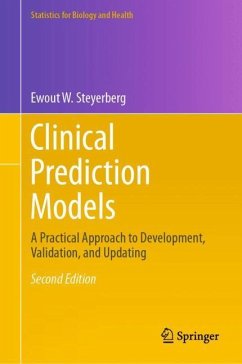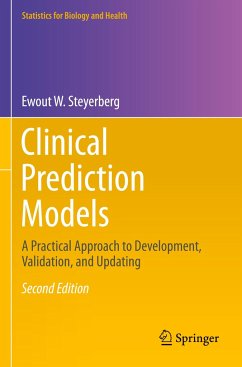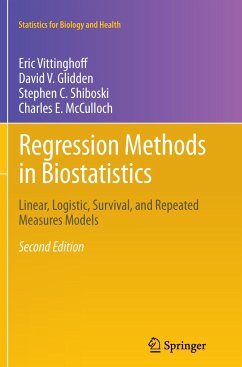
Epidemiology
Key to Prevention
Versandkostenfrei!
Versandfertig in 6-10 Tagen
76,99 €
inkl. MwSt.
Weitere Ausgaben:

PAYBACK Punkte
38 °P sammeln!
This book is meant for adoption in first courses on epidemiology in Medical Schools and Faculties of Public Health in developing and transition countries and in workshops in these countries, taught for example by members of international organizations. It is also suitable for parallel or second reading within curricula in developed countries and for teaching epidemiology in a Master's programme on "International Health". The book will enable any lecturer to compose his or her introductory courses on epidemiology by selecting the material deemed appropriate. It will provide a solid foundation f...
This book is meant for adoption in first courses on epidemiology in Medical Schools and Faculties of Public Health in developing and transition countries and in workshops in these countries, taught for example by members of international organizations. It is also suitable for parallel or second reading within curricula in developed countries and for teaching epidemiology in a Master's programme on "International Health". The book will enable any lecturer to compose his or her introductory courses on epidemiology by selecting the material deemed appropriate. It will provide a solid foundation for more advanced teaching.
The intended readership consists in the first place of general medical students; students following the programme "Preventive Physician" that runs parallel to general medical studies in some countries; students starting to specialize in Public Health; and lecturers in epidemiology. The book can also serve well as an introduction into epidemiology for anybody else interested in this field, for example staff of health institutions.
Examples and practical work are taken from the present situation of health in Vietnam, which can easily be adapted to any other developing or transition country.
The intended readership consists in the first place of general medical students; students following the programme "Preventive Physician" that runs parallel to general medical studies in some countries; students starting to specialize in Public Health; and lecturers in epidemiology. The book can also serve well as an introduction into epidemiology for anybody else interested in this field, for example staff of health institutions.
Examples and practical work are taken from the present situation of health in Vietnam, which can easily be adapted to any other developing or transition country.














